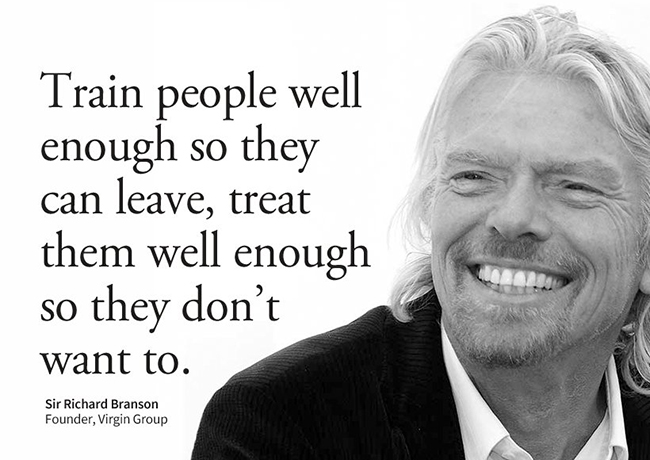Sometimes, leadership feels harder than it should be. Certain things need doing, your team is clear on the objective, and those action items still aren’t getting done. Even when they are, you can feel the lack of enthusiasm for the work. Sometimes it manifests as confusion or frustration, desperation or unhealthy competition. Sometimes, just a general sense of apathy.
You want to fix it, to motivate the team, but the more time and energy you invest, the more other people seem to want out of you. Why does leadership sometimes feel so hard, when other people make it look so easy?
The struggle and the sacrifice
Recently, one of my clients reached out with a similar issue. He said, “Trish, I feel like I have to please so many people, I don’t have time for myself … I know I need to take the time, but, I feel selfish for taking ‘me time’ when so many people need me…”
Sound familiar? Do you have times where you know you would benefit from a break, and you skip it, because the buck stops with you, and you don’t want to let someone else down? You want to set a good example, to be the sort of leader who is There For Your People when they need you. You want to understand them, for them to be excited about their job and happy to be on the team. So you go all out, be everything you can for them, without thinking of yourself.
Here’s the thing…
When we’re always committed to making other people happy, we will always be at the mercy of other people’s happiness … and this is something over which we have no control. We cannot make anyone else happy. Fortunately, that’s not our job!
Happiness is both a choice and a result, and we are not responsible for either of those factors in other people. Each person is responsible for their happiness. So what does Understanding and Being There for a team look like when the leader no longer factors in “Make Them Happy” as one of their metrics of success?
A different way to think about influence
Happy is a feeling, and feelings can change. I like to remind people, feelings are like gas — they happen and they pass. Value is something else entirely. When we’re committed to adding value to life, ours and others, our focus shifts from making something happen (a finite result) to being a complement to something (an ongoing benefit).
When we focus on adding value to ourselves for the benefit of others, we can be free to be the best version of ourselves. When we are being that person, we will naturally add value to others around us. When we are at our best, we are giving others the benefit of our optimum focus, determination and enthusiasm. By being the best version of ourselves, we become the example we want to be.
When we are more focused, we become more present, a better listener. When we’re not fully present, it’s easy to be distracted, to miss important things people are saying and being. Remember, the act of listening is something we do FOR someone, not TO them. People love to be around people they feel truly get them, and we can be that for someone else when we choose to listen for them, rather than to them. Purposeful listening is a tremendous way to establish trust, communicate understanding and build influence.
Making the shift
My client felt one of the obstacles keeping him from being his best was time management. So many distractions enticing him away from living and working in his strengths.
While tools — like a day planner, calendar or smartphone — can help overcome this kind of challenge, the real catalyst is our mind. This is true no matter what obstacles are keeping us from being our best. What we think, what we tell ourselves, what we make things mean … these are the things that allow us to become distracted, stressed out or frustrated.
When we transition from working so hard to make people happy to being fully present and purposefully listening in order to better understand what is keeping us from being the best version of ourselves, we are free to focus on being our best, leading to a greater capacity to add value to everyone around us.
That’s the first step in transitioning from striving for a finite result (happiness) to offering an ongoing benefit (value). Next time, we’ll unpack this idea a bit more by asking the question: “Is there a better way to earn my team’s trust?”

What transformational leaders see
When we’re considering a vision or looking ahead at a goal, how can we know if it will be “good,” or it will be “transformational?” What makes the difference? What pushes us over the tipping point from being effective managers to becoming inspiring...

How leading at every level turns customers into fans
Recently, I stopped by a new restaurant in town. It was a fast casual joint, famous for great burgers and delicious shakes, so we decided to give it a try. We arrived anticipating a delicious meal and a tasty treat, however, we did not expect a shining...

How transformational is your vision? Take the quiz!
If we want to accomplish things we have never done, to go from where we are to where we want to be, we must expand our beliefs about our abilities, our focus, and our efforts. We must transform our vision and shift our thinking in a way that makes it all...

Shaun White: a Gold Medal Lesson in What Separates Failure and Success
For this article, I invited my friend and colleague, E. Adam Porter, to share his thoughts on leadership after this week’s remarkable Winter Olympic competition. Even if you knew next to nothing about champion snowboarder, Shaun White, you knew there was...

Building a Leadership Culture
In previous blogs, especially here, here and here, we’ve talked about what a leadership culture looks like on a team. An active leadership culture is not only an environment in which leadership is embraced and trusted, it is an environment in which the...

4 questions to prepare you for your next big opportunity
In recounting stories of their success, people often say that one opportunity changed the trajectory of their life. We hear it all the time: on awards shows, after sporting events, during graduation speeches. Someone, at some point, was presented with an...

5 questions every employee wants their boss to ask
Recently, Forbes published a list of 10 Things Only Bad Bosses Say. While most of us have ‘bad boss experiences’ in the past, so we may relate, this article got me thinking about some of the things great leaders say to inspire and motivate their teams....

What Richard Branson looks for in a leader
Sometimes, as leaders, we feel pulled in two different directions, do we invest our time and energy in our employees or our customers? While it’s easy to say “both,” the reality is, we have limits on our time, so one or the other is going to get more of...


0 Comments